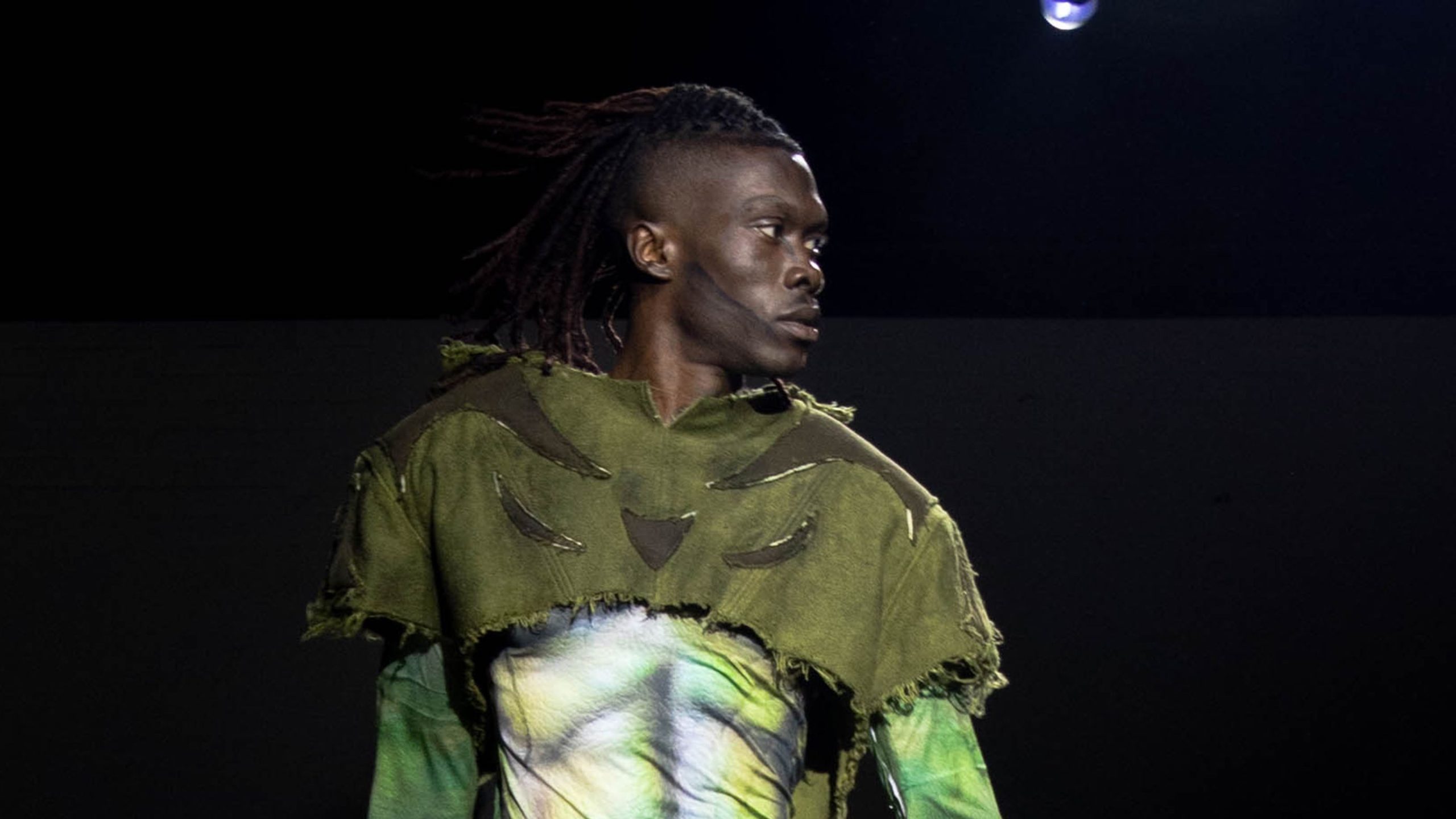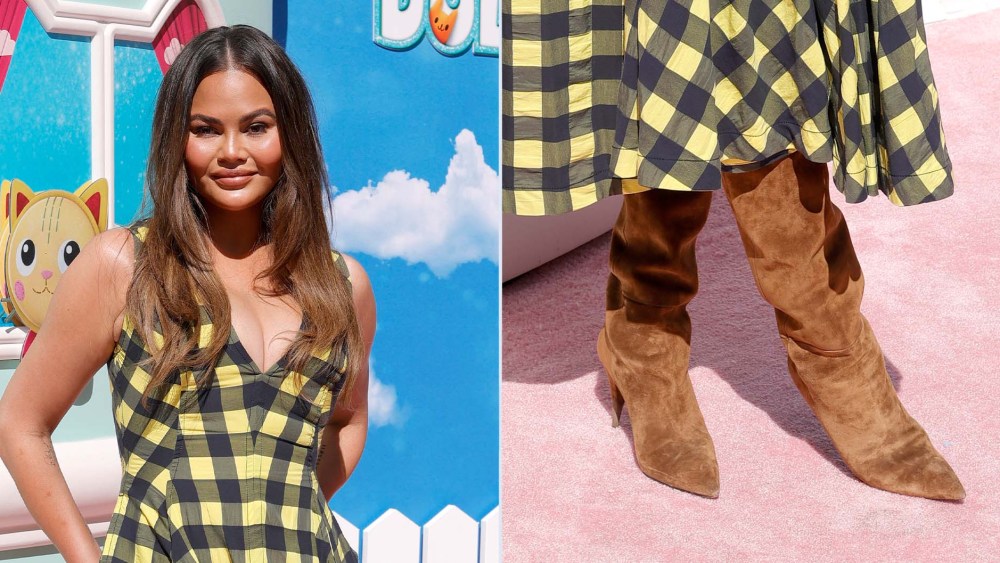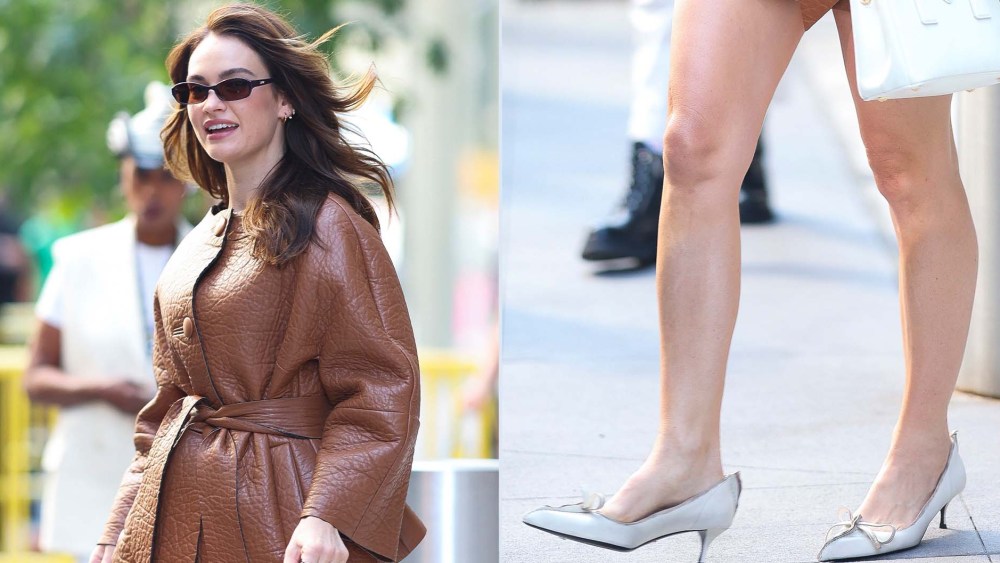
Most designers take a while to develop their brand universes, but with Yaku, the universe comes first. “Our collections follow a family that’s based on my own family,” explained designer Yaku Stapleton during a preview of his spring collection. “It’s like a group of characters that are exploring and navigating a limitless world that’s inspired by the online RPG I used to play when I was young—as well as our own human and natural history. It’s a combination of all these influences through the prism of fashion design.”
Stapleton graduated from the CMS MA in 2023 and is currently a designer-in-residency at the Paul Smith Foundation. He introduced his game-infested world to London Fashion Week in 2024, and has been slowly but steadily garnering buzz as well as good will for his performance-heavy presentations, as well as his stegosaurus shoes, dino printed trousers, modular hats and fabric swords and daggers.
Last season, which was the brand’s second time showing at LFW, Yaku’s characters finished training on a Tutorial Island—the digital space where you learn how to play before entering a video game. “They built their own skills to a point that they’re now ready to go and face real world challenges,” said Stapleton of his characters. “They also want to go and see what the wider world has to offer. And I think as a team who have largely been working together for two years, we are ready to take a bigger step forward this time.”
That step forward was realized by way of a performance that took place throughout the day at 180 Strand and saw his characters enter this new world, and meet a tribe called the Télavani. “I always think of function: things need to look good and work even if you wash them all the time. That is my entry point into fashion and why my collections are streetwear heavy,” said Stapleton. “For the Télavani, who are meant to be more rooted in the land, we wanted to manipulate the silhouettes that have been the base of the brand the last two years. We elongated the torso and the arms and added more fastenings and pocketing details.”
How did the Télavani come about? “We began this exercise as a team, where we started looking at our family histories. And in doing my own, I came across people I hadn’t before, like the Maroons or the Garifuna of Jamaica and Saint Vincent, who resisted colonialism over several wars. It was crazy to have the lineage that I understood extended by hundreds and hundreds of years. So I wanted to reference those people through Afrofuturism. To kind of re-realign what could happen if a people came to somewhere new and, rather than trying to conquer, disorganize and displace, they looked to learn and collaborate. That’s where the Télavani came from. I wanted them to feel humanoid, but almost superhuman,” Stapleton explains.
While all this is great in theory, it also makes sense in practice. Stapleton runs the company with his partner Nas, who has taken on the more operational part of the gig. She says the plan is to gain more independence by becoming primarily direct to consumer. They’d like the Télavani line to be their DTC play. Apparently the idea for it only took form after they had fulfilled their wholesale orders.
Last season, Yaku also introduced a merch stand to the presentation, which repeated this time around. At £30 a T-shirt and with certain styles and sizes selling out by the second show, it was a savvy move for a developing brand.
#Yaku #Spring #ReadytoWear #Collection






